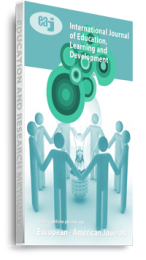Innovative instructional methods comprise a combination of approaches to teaching and learning that embrace modern technologies and are adaptable to different contexts. Since 1998, the College of Health Sciences of Moi University has embraced these innovative instructional methods to respond to 21st century challenges and trends in health professions’ training and education. Nevertheless, to date, students and lecturers’ experiences on the effectiveness of these methods have not been investigated. Therefore, the study sought the views of students and lecturers on the possible interventions in implementation of innovative instructional methods in Public Health Programme of Moi University. Mixed methods approach was used in this study involving the use of both quantitative and qualitative strategies. This was aimed at providing a comprehensive analysis of the research problem. The quantitative strategy (cross-sectional survey research) was used to gather numeric descriptions of level of knowledge of innovative instructional methods among a sample of lecturers. The qualitative strategy (phenomenological research) was used to identify students and lecturers’ experiences about determinants of use of innovative instructional methods. Pre-tested structured and unstructured sets of questionnaire were administered to students and lecturers of the school of Public Health. Structured interview was conducted among a sample of members of the management team including the Dean School of Public Health and Heads of Various Departments. An observational checklist was used to assess the adequacy of infrastructure and availability of instructional materials. From the study results, all the students and lecturers believe that there are interventions that need to be put in place to improve the use of innovative instructional methods in the implementation of the Public Health Programmes. Therefore, various interventions need to be put in place as suggested by the students and lecturers. These include training workshops to enhance capacity building for the staff and students and a closer follow-up on the implementation of innovative instructional methods. The main reason as to why the interventions were necessary was to help address shortcomings faced in using innovative instructional methods. From the study, it was emphasized that the interventions should be implemented as part of university policy on teaching and learning. It was thus recommended that the government, through the Ministry of Education, should supply schools with adequate resource materials to enable teachers and learners to play their roles satisfactorily in the curriculum implementation process. The study of interventions needed to enhance implementation, specially from the perspectives of the students and lecturers, was essential to understand the true picture of what needs to be done to improve the health education programme outcomes.
Keywords: Implementation, Kenya, Use, innovative instructional methods, interventions, public health programmes

